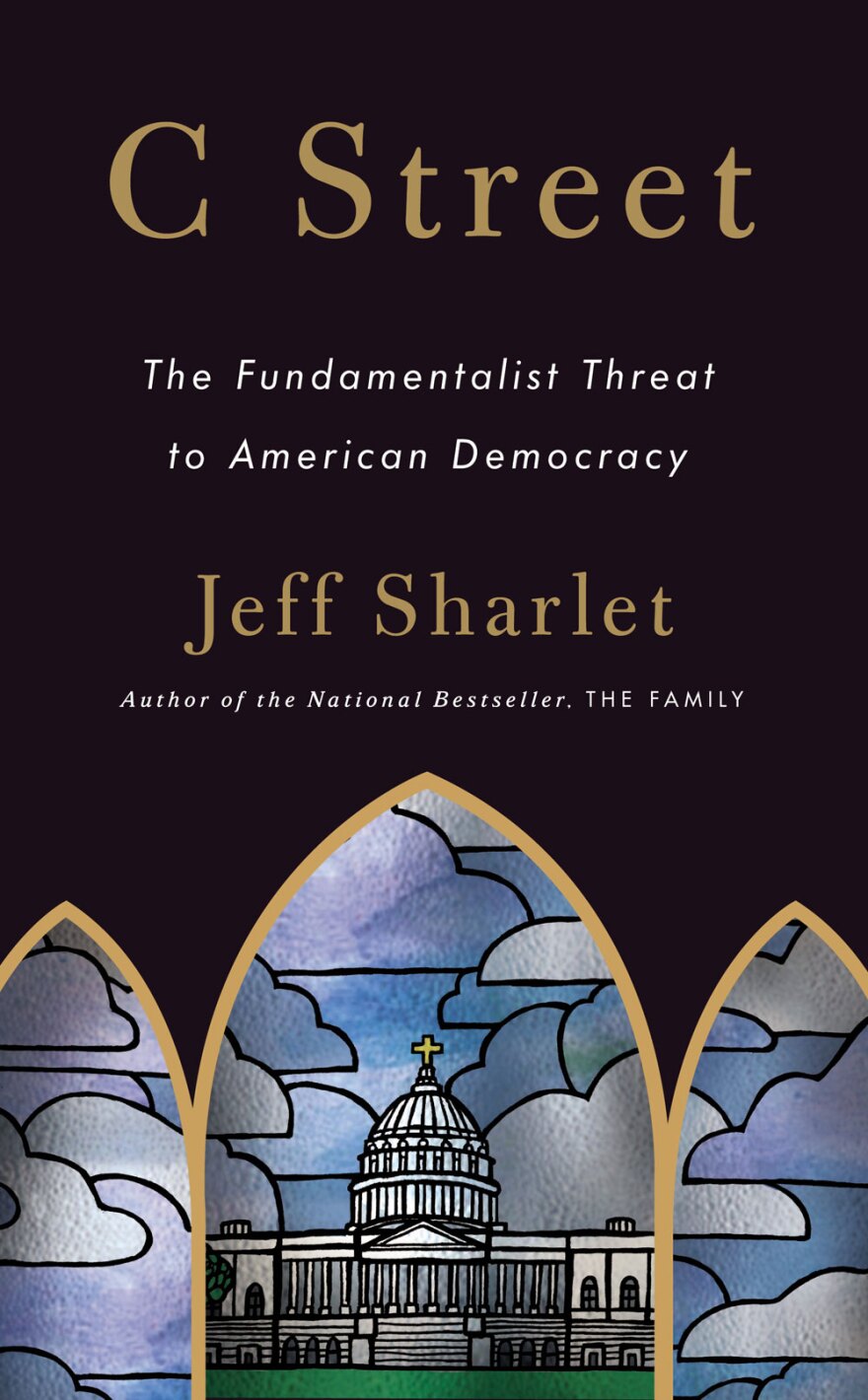In his book The Family: The Secret Fundamentalism at the Heart of American Power, Jeff Sharlet examined a powerful, secretive group in Washington, D.C., know as the Family, or the Fellowship.
The Family, made up of some of the most powerful politicians in Congress, founded and organizes the National Prayer Breakfast, where every president since Dwight Eisenhower has spoken. The group also organizes prayer groups for Senate and House members at the Capitol.
The group also has a connection to a three-story, brick townhouse on C Street, located roughly three blocks from the Capitol. Owned by a foundation affiliated with The Family, the house is a home-away-from-home for fundamentalist Christian members of Congress, including Nevada Sen. John Ensign, South Carolina Gov. Mark Sanford, who lived there when he was a member of the House and South Carolina Sen. Jim DeMint.
Sharlet writes about C Street and the politicians who are affiliated with the house in C Street: The Fundamentalist Threat to American Democracy. The book's message is that Christian fundamentalists have tried to reshape American politics and the military.
In a conversation on Fresh Air, Sharlet describes the ways politicians affiliated with C Street have wielded influence in recent primary elections. He points to Sen. DeMint, who has recently emerged as one of the top members in Congress to back candidates affiliated with the Tea Party.
"He's representing this convergence of a populist fundamentalism with the elite fundamentalism," says Sharlet. "[Sen. DeMint's] in Washington and granting a kind of legitimacy [to the Tea Party.] Even as certain factions within the Republican Party struggle against it, DeMint's coming out on top in race after race. That's one of those moments that you look at when populist and elite fundamentalism merge like that and it becomes a more politically and culturally important force: a transformative moment."
Sharlet says DeMint is establishing himself as a bridge between the Tea Party and the Republican Party.
"As this establishment figure, he's saying to the Tea Party movement -- which does contain a lot of traditional Libertarians who don't see themselves as religiously motivated -- and [he's] saying, 'If you want to get in through the halls of power, you're going through me. I'm the man who can take you there. I'm your Moses. I see this movement as a Great Awakening, as a religious movement.' And there are a lot of people in the Tea Party who share that view and he can shape it."
Sharlet is a contributing editor for Harper's Magazine and Rolling Stone. His work has also appeared in The Washington Post and Mother Jones.
Interview Highlights
On Christianity and the military
"I should say the vast majority of the military personnel understand their oath to the Constitution and understand why they're there and their duty. But there is a very significant movement within [the military] which sees the military as a Christian institution. They seem themselves as Christian warriors. They see themselves as responsible for protecting and defending America's tradition as a Christian nation and representing that overseas. For a lot of them personally, it just meshed well with their personal beliefs because they didn't have to engage in these kind of culture war issues and the military just decided for them. That decision comes down on terms that are very comfortable for religious conservatism."
On the ability of the 'Christian warriors' in the military to influence 'don't ask, don't tell'
"There's an organization called Officers for Christian Fellowship. [It has] 15,000 members and they're officers includes many top ranking generals and former general and admirals. They define their mission as reclaiming territory for the Christ in the military [and] not allowing the opposition, all of which is spearheaded by Satan, to stand in the way. That's from their mission statement of what they're doing. They even refer to military personnel who may be Christian but not saved -- not Evangelical -- as unwittingly doing the work of the enemy, of spiritual terrorists. And we're talking about folks like Gen. Bob Caslen, a senior commander [and] Gen. Robert Van Antwerp, another senior commander. So when you have that level of command committed to these ideas, committed to the idea that the military exists to embody their understanding of Christian values, it's not surprising that they can exert a force or a political influence that even a lot of the officers find difficult to resist."
On accrediting chaplains
"There was a great withdrawal of chaplains from the old mainline Protestant denominations -- the Episcopalians and the Methodists and the traditional Presbyterians who were leaving in a large part. That was a legacy of the Vietnam War and there was a shortage of chaplains. So the military, through no attempt to create this fundamentalist movement, started really radically broadening the accrediting agencies it recognized chaplains from. So Bible colleges where instead of learning about all different faiths and how to minister to groups of all different faiths, you learn that there's a right way of Christianity ('my Christianity') and a wrong way (everything else.) Suddenly those people started infusing the military. And they started lifting regulations that said 'Well, you have 10 percent [of people in the military who are practicing] Presbyterians, you should have roughly 10 percent Presbyterian chaplains.' That doesn't mean you get a Presbyterian chaplain but you know they're out there. That's all gone. And now we've reached a point where according to one chaplain about 80 percent of the chaplains describe themselves as conservative or Evangelical."
Copyright 2023 Fresh Air. To see more, visit Fresh Air.

